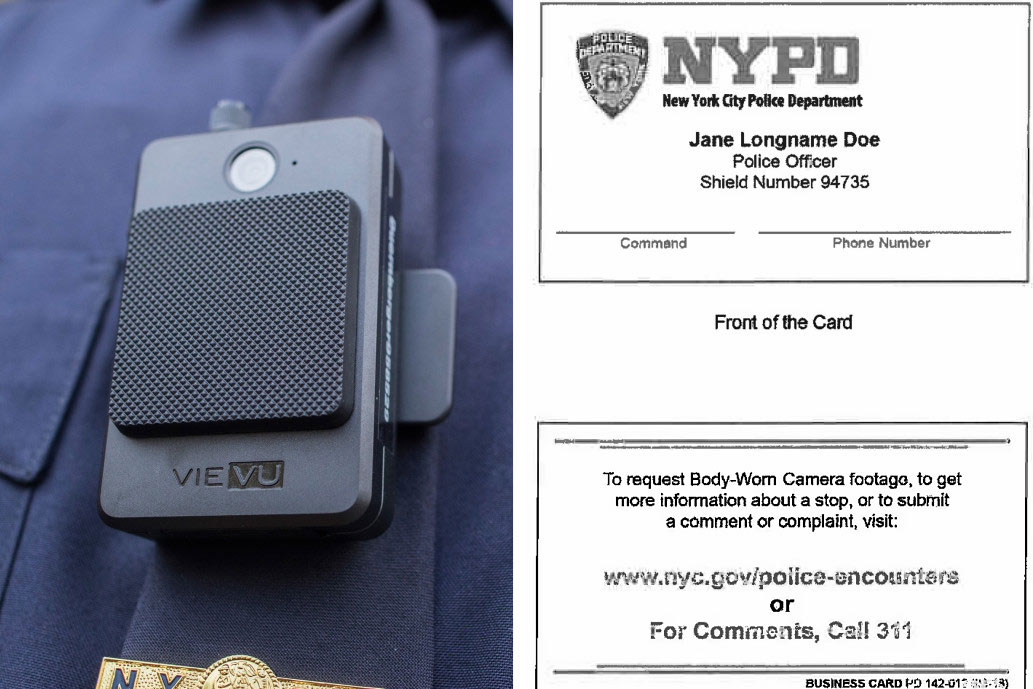





AP
NYPD cops have started handing out business cards to people they encounter on the job but don’t arrest — and they include instructions on how to request body-cam footage.
The pilot program, part of the city’s Right to Know Act enacted in December as a reaction to complaints about stop-and-frisk searches, was rolled out without fanfare May 1 in four precincts, according to a department directive shared with The Post.
The cards include the names, ranks and shield numbers of the officers, as well as information about a city Web site where people can review their encounters with officers, as well as request body-camera footage.
Officers are required to offer a card to every person who’s the subject of a “law enforcement activity” that doesn’t end in an arrest or summons — including interviews of suspects, frisks and home searches.
Law-enforcement sources slammed the Web site reference, saying the cards will create a mountain of red tape.
“That’s ridiculous,” griped one police source. “Who’s paying for this? Who’s going to be distributing the video?”
The card directs to a page telling visitors to file a Freedom of Information Law request with the department to obtain a copy of the footage.
“They are also opening the floodgates for anti-police advocates to demand the release of footage [of] every single police action,”Patrolmen’s Benevolent Association President Patrick Lynch said Tuesday.
A source also voiced concerns about putting cops’ names and contact information in the hands of people they investigate.
“That’s a disgrace,” fumed the insider.
“You have gang members out there. You shouldn’t be making it easier for perps to track down cops in this day and age.”
Cops in the 40th and 45th Precincts in The Bronx, and the 75th and 90th Precincts in Brooklyn were the first to receive the cards.
The program will eventually include all of the NYPD’s 36,000 cops — at a cost to taxpayers of nearly $6 million in the first year alone.
The Right to Know Act also requires that cops get consent from people before searching them without a legal basis, and obtain proof of consent for any such searches that do take place.
Additional reporting by Aaron Feis